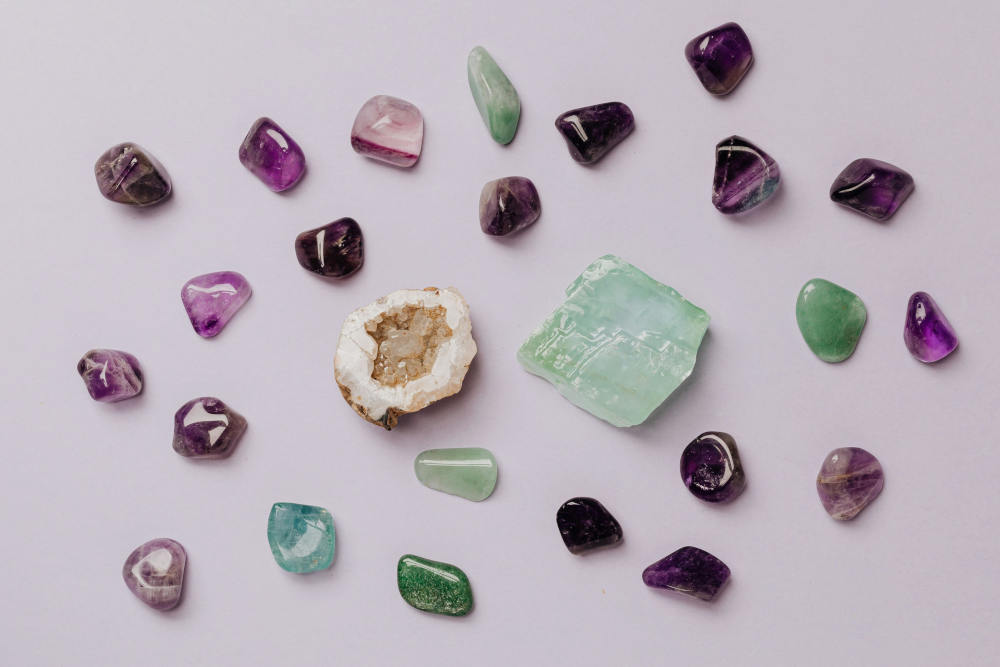
Crystals and precious stones have fascinated people for thousands of years. Today, many associate them with beauty, healing, or spiritual energy. But what does the Bible say about crystals and stones? Are they viewed as sacred? Are they used symbolically? Or are they warned against?
In this article, we’ll explore Bible verses that mention crystals, gemstones, and stones, looking at their significance in Scripture and what they mean for Christians today.
Panaprium is independent and reader supported. If you buy something through our link, we may earn a commission. If you can, please support us on a monthly basis. It takes less than a minute to set up, and you will be making a big impact every single month. Thank you!
The Beauty and Symbolism of Stones in the Bible
The Bible often uses stones and crystals to symbolize beauty, purity, strength, and the glory of God’s creation. Throughout Scripture, precious stones are associated with holiness, divine presence, and the majesty of heaven.
It’s important to understand that the Bible never attributes magical powers to stones. Instead, they are portrayed as part of God's magnificent creation, sometimes used symbolically to represent deeper spiritual truths.
Let’s dive into key passages where stones and crystals are mentioned.
1. The High Priest’s Breastplate (Exodus 28:17-20)
One of the most detailed descriptions of precious stones in the Bible appears in Exodus 28, where God instructs Moses on making the High Priest’s garments.
"Then mount four rows of precious stones on it. The first row shall be carnelian, chrysolite, and beryl; the second row shall be turquoise, lapis lazuli, and emerald; the third row shall be jacinth, agate, and amethyst; the fourth row shall be topaz, onyx, and jasper. Mount them in gold filigree settings." (Exodus 28:17-20, NIV)
Each stone represented one of the twelve tribes of Israel. The High Priest wore the breastplate as he entered the Holy of Holies, symbolizing his role as a mediator between God and His people.
Key takeaway:
Precious stones are seen as objects of beauty and significance, honoring God’s covenant with His people.
2. The Garden of Eden and the King of Tyre (Ezekiel 28:13)
In Ezekiel 28, the prophet uses rich imagery to describe the King of Tyre, comparing him to the perfection and beauty of Eden:
"You were in Eden, the garden of God; every precious stone adorned you: carnelian, chrysolite and emerald, topaz, onyx and jasper, lapis lazuli, turquoise and beryl. Your settings and mountings were made of gold..." (Ezekiel 28:13, NIV)
The passage emphasizes the glory, wealth, and beauty that were originally given but later corrupted by pride.
Key takeaway:
Precious stones symbolize divine blessing and beauty—but they also serve as a warning against pride and corruption.
3. The New Jerusalem (Revelation 21:18-21)
In the final book of the Bible, Revelation, John describes a breathtaking vision of the New Jerusalem:
"The wall was made of jasper, and the city of pure gold, as pure as glass. The foundations of the city walls were decorated with every kind of precious stone." (Revelation 21:18-19, NIV)
The passage lists twelve specific stones:
-
Jasper
-
Sapphire
-
Agate
-
Emerald
-
Onyx
-
Ruby
-
Chrysolite
-
Beryl
-
Topaz
-
Turquoise
-
Jacinth
-
Amethyst
The city’s gates were made of pearls, and the streets were pure gold. The imagery shows the glory, purity, and eternal beauty of God's heavenly kingdom.
Key takeaway:
In heaven, God's glory is reflected in the beauty of precious stones, pointing to perfection and divine splendor.
4. Wisdom Compared to Precious Stones (Proverbs 3:15 and Proverbs 8:11)
The Bible often compares wisdom to something more valuable than any gemstone:
"She is more precious than rubies; nothing you desire can compare with her." (Proverbs 3:15, NIV)
And again:
"For wisdom is more precious than rubies, and nothing you desire can compare with her." (Proverbs 8:11, NIV)
While stones are valuable, the Bible makes it clear that spiritual wisdom surpasses all earthly treasures.
Key takeaway:
Earthly beauty and riches are temporary; true value lies in wisdom and a relationship with God.
5. Foundations of God's Temple (1 Chronicles 29:2)
When King David prepared to build the temple, he gathered precious materials:
"With all my resources I have provided for the temple of my God—gold for the gold work, silver for the silver, bronze for the bronze, iron for the iron and wood for the wood, as well as onyx for the settings, turquoise, stones of various colors, and all kinds of fine stone and marble..." (1 Chronicles 29:2, NIV)
David’s offering showed his reverence and love for God, offering the best of the earth's treasures.
Key takeaway:
Precious stones are fitting offerings when used to honor God, not to glorify human pride.
6. Stones as Memorials (Joshua 4:5-7)
Not all biblical references to stones involve crystals or jewels. Common stones also have deep spiritual significance.
When the Israelites crossed the Jordan River, Joshua instructed them:
"Each of you is to take up a stone on his shoulder... to serve as a sign among you." (Joshua 4:5-6, NIV)
These stones were set up as a memorial to remember God's miraculous help in crossing the river.
Key takeaway:
Stones often serve as reminders of God's faithfulness.
How Crystals and Stones Are Viewed in the Bible
Summarizing the Bible’s treatment of crystals and stones:
-
God created them: Precious stones are part of the natural beauty of creation.
-
They symbolize divine truths: Stones represent beauty, purity, faithfulness, and divine glory.
-
They have no inherent power: The Bible does not attribute supernatural powers to stones themselves.
-
They are never to be worshiped: All worship, trust, and hope must be directed to God alone.
The Bible’s concern is never with the object itself but with how humans interact with it. Stones can either point us to the Creator—or distract us if misused.
Biblical Warnings About Idolatry and Sorcery
While the Bible celebrates stones’ beauty, it clearly warns against certain spiritual practices:
"Do not turn to idols or make metal gods for yourselves. I am the Lord your God." (Leviticus 19:4, NIV)
"There shall not be found among you anyone who... practices divination or tells fortunes or interprets omens..." (Deuteronomy 18:10, ESV)
In biblical times, many pagan religions used crystals and stones in magic, divination, and idol worship. The Bible strongly opposes seeking power, protection, or healing through created objects rather than through God.
Should Christians Use Crystals Today?
Given the biblical background, Christians are free to appreciate crystals and stones as part of God’s beautiful creation. Wearing gemstones, decorating with them, or admiring their beauty is not sinful in itself.
However, Christians must be careful to:
-
Avoid attributing spiritual power to crystals outside of God’s provision.
-
Stay rooted in faith and prayer.
-
Honor God alone as the source of healing, guidance, and protection.
Using crystals as reminders of God’s beauty or faithfulness is very different from using them as spiritual tools apart from Him.
Conclusion: Crystals Reflect God's Glory, Not Power
The Bible paints a rich picture of crystals and stones: dazzling, colorful, valuable, and meaningful. From the High Priest’s breastplate to the foundations of the New Jerusalem, precious stones represent the beauty, purity, and glory of God.
Crystals themselves are not forbidden.
What matters is the heart behind how we use and view them.
For Christians, all of creation—including beautiful stones—should lead us to worship the Creator, not the creation. Crystals can remind us of God's creativity and majesty, but our hope, healing, and salvation rest in Christ alone.
Whenever you admire the brilliance of a crystal or the deep hues of a precious stone, let it be a reflection of something even greater:
the unfading, eternal beauty of God’s kingdom.
Was this article helpful to you? Please tell us what you liked or didn't like in the comments below.
About the Author: Alex Assoune
What We're Up Against
Multinational corporations overproducing cheap products in the poorest countries.
Huge factories with sweatshop-like conditions underpaying workers.
Media conglomerates promoting unethical, unsustainable products.
Bad actors encouraging overconsumption through oblivious behavior.
- - - -
Thankfully, we've got our supporters, including you.
Panaprium is funded by readers like you who want to join us in our mission to make the world entirely sustainable.
If you can, please support us on a monthly basis. It takes less than a minute to set up, and you will be making a big impact every single month. Thank you.



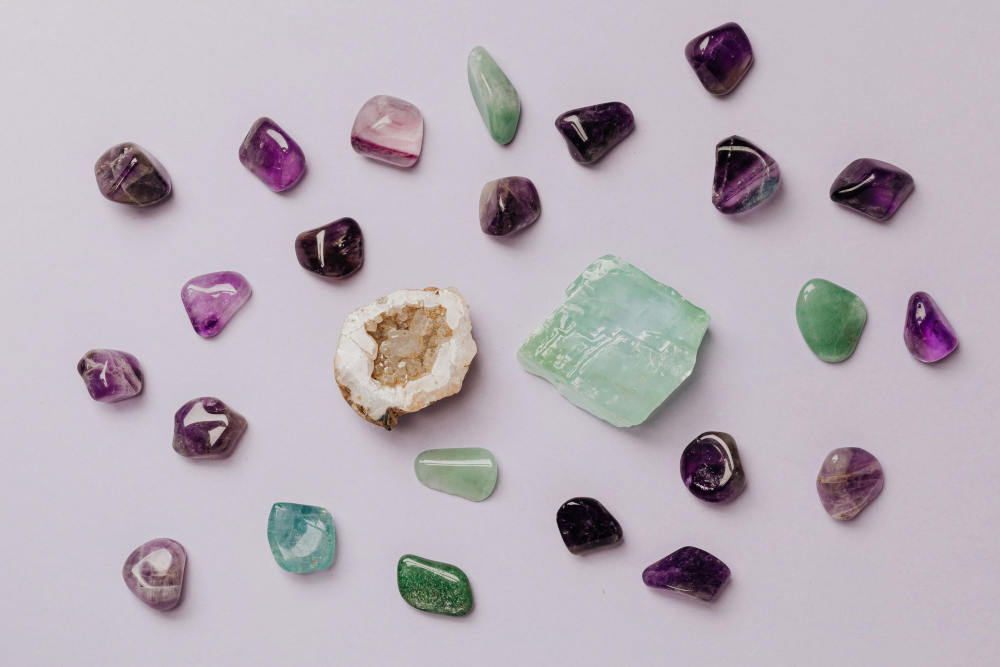
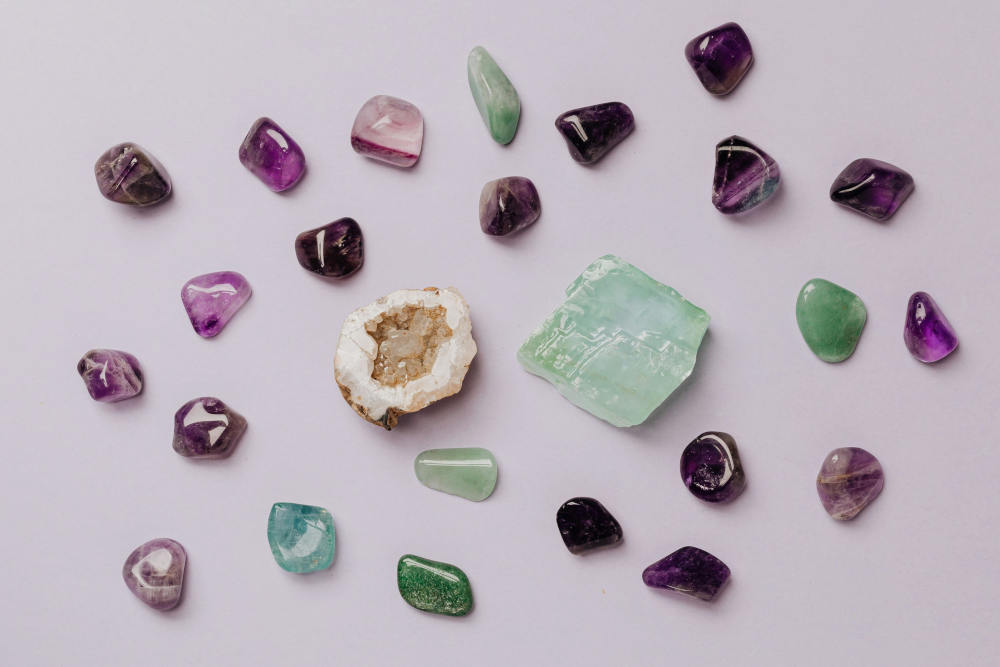
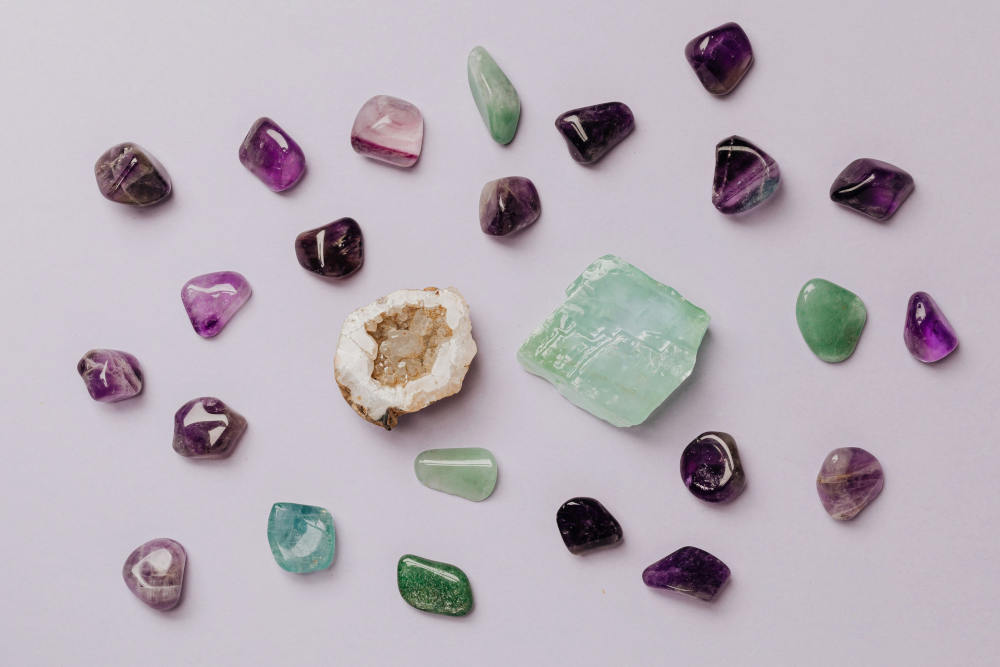
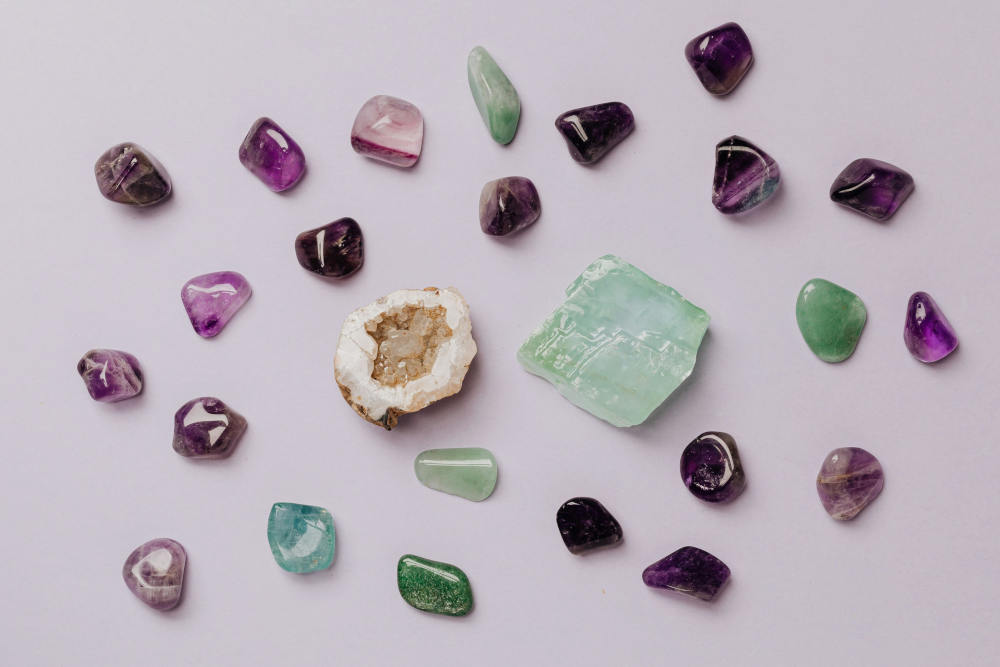




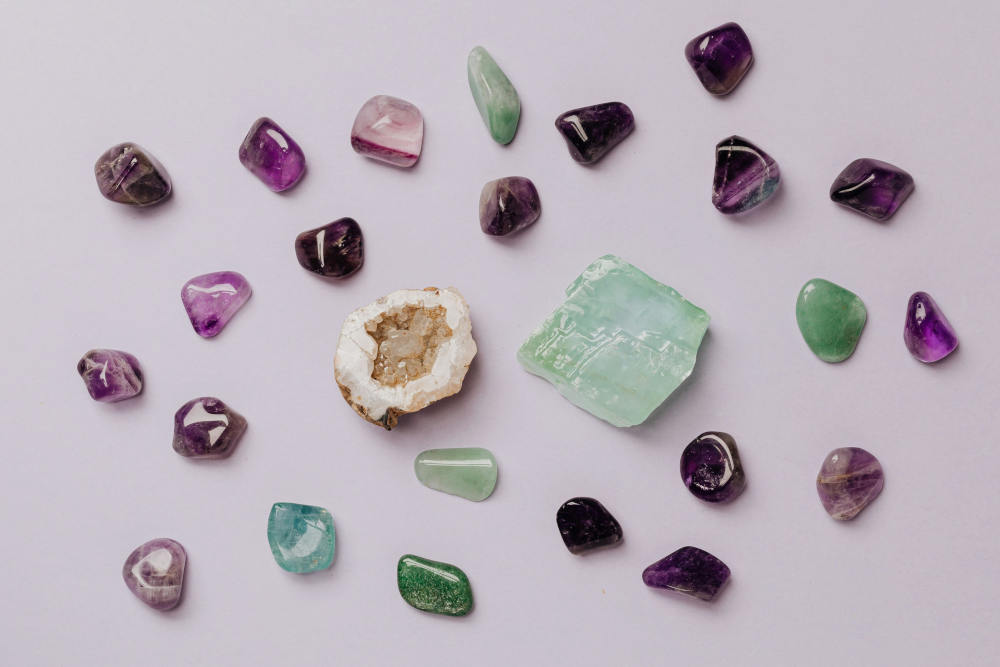



















0 comments